JW Kings
- C.Aamold

- Nov 4, 2024
- 24 min read
Updated: Aug 27
NOTE: I do not subscribe to any religion. I once believed in Masoretic Text translations until I dug deeper and came to a different conclusion during my search through Christian denominational teachings, their leaders, and the roots of how they started, while reading the Bible itself verse by verse a few times (many translations) or more to match up their beliefs to the spiritual book they claim to follow and believe in themselves. If you ask me what I believe, I would say what the scholarly census has agreed upon, even if the decision board doesn't agree with them because they're worried about the faith of humanity for what they were taught to believe despite it contradicting evidence. Anything I've studied, watched, read is added here to help you see how I got to this point to help others who are curious too.
(All sourced, even the sources have sources)
Dear ole' Rutherford

Joseph Franklin Rutherford |
|
Born | November 8, 1869 |
Died | January 8, 1942 (aged 72) San Diego, California, US |
Occupation | |
Known for | President of the Watch Tower Bible and Tract Society |
Movement | |
Spouse | Mary Malcolm Fetzer (m. 1891) |
Children | 1 |
Signature |
|

Joseph Franklin Rutherford (November 8, 1869 – January 8, 1942), also known as Judge Rutherford, was an American religious leader and the second president of the incorporated Watch Tower Bible and Tract Society. He played a primary role in the organization and doctrinal development of Jehovah's Witnesses,[1][2][3] which emerged from the Bible Student movement established by Charles Taze Russell.
Rutherford began a career in law, working as a court stenographer, trial lawyer and prosecutor. He became a special judge in the 8th/14th Judicial District of Missouri at some time after 1895.[4][5] He developed an interest in the doctrines of Watch Tower Society president Charles Taze Russell, which led to his joining the Bible Student movement, and he was baptized in 1906. He was appointed the legal counsel for the Watch Tower Society in 1907, as well as a traveling representative prior to his election as president in 1917. His early presidency was marked by a dispute with the Society's board of directors, in which four of its seven members accused him of autocratic behavior and sought to reduce his powers.
A dispute developed in 1917 within the leadership of the Watch Tower Bible and Tract Society following the death of society president Charles Taze Russell and election of legal counsel Joseph Franklin Rutherford as his successor. An acrimonious battle ensued between Rutherford and four of the society's seven directors, who accused him of autocratic behavior and sought to reduce his powers. Rutherford claimed the dissident directors had formed a conspiracy to seize control of the society and overcame the challenge by gaining a legal opinion that his four opposers had not been legally appointed. He subsequently replaced them with four new sympathetic directors.[1][2]
The four ousted directors later gained 12 legal opinions that Rutherford's actions were unlawful. The leadership crisis divided the Bible Student community and helped contribute to the loss of one-seventh of the Watch Tower adherents by 1919.
Rutherford felt the need to defend himself against rumors within the Brooklyn headquarters that he had used "political methods" to secure his election. In the first of a series of pamphlets from opposing sides, Rutherford told Bible Students: "There is no person on earth who can truthfully say that I ever asked them directly or indirectly to vote for me."[5] By June, the dispute surrounding Rutherford's election as president was turning into what he called a "storm"[6] that ruptured the Watch Tower Society for the remainder of 1917.
At issue were new by-laws that had been passed in January by both the Pittsburgh convention and the board of directors, stating that the president would be the executive officer and general manager of the Watch Tower Society, giving him full charge of its affairs worldwide.[11] Opinions on the need for the by-laws were sharply divided. Rutherford maintained that Russell, as president, had always acted as the society's manager, and that the January 6 vote by shareholders to approve the by-laws proved they wanted this process to continue under his successor.[12] He claimed it was a matter of efficiency and said the work of the Watch Tower Society "peculiarly requires the direction of one mind".[13]
Bible Student Francis McGee, a lawyer and an assistant to the New Jersey Attorney-General, responded: "This is then the crux of the matter. He says he is that one mind."[14] By June, four board members—Robert H. Hirsh, Alfred I. Ritchie, Isaac F. Hoskins and James D. Wright—had decided they had erred in endorsing Rutherford's powers of management.[15] They claimed Rutherford had become autocratic, refusing to open the Watch Tower Society's books for scrutiny and denying Johnson a fair hearing over his actions in London.[15]
At a board meeting on June 20, Hirsh presented a resolution to rescind the new by-laws and reclaim the powers of management from the president,[16] but a vote was deferred for a month after strenuous objections by Rutherford.[17] A week later, four of the directors requested an immediate board meeting to seek information on the society's finances. Rutherford refused the meeting, later claiming he had by then detected a conspiracy between Johnson and the four directors with the aim of seizing control of the society, as he believed Johnson had attempted in Britain.[18]
Within weeks, Rutherford gained a legal opinion from a Philadelphia corporation lawyer that a clause of the Watch Tower Society charter stipulating that its directors were elected for life was contrary to Pennsylvania law, and that all directors were required by law to be re-elected annually. The legal opinion stated that because the January 6 shareholders' meeting had elected only three men to office—Rutherford, Secretary-Treasurer Van Amburgh and Vice-President Andrew N. Pierson—the remaining four board members, who had joined as early as 1904 and had not faced re-election, had no legal status as directors of the society. Even Hirsh, who had been appointed by the board on March 29, 1917, following the resignation of Henry C. Rockwell, was said to have no legal standing because his appointment had taken place in New York rather than Allegheny, as required by law. Rutherford claimed to have known these facts since 1909 and to have conveyed them to Russell on more than one occasion.[19]
On July 12, Rutherford traveled to Pittsburgh and exercised his right under the society's charter to fill what he claimed were four vacancies on the board, appointing A. H. Macmillan and Pennsylvania Bible Students W. E. Spill, John A. Bohnet and George H. Fisher as directors.[20] Rutherford called a meeting of the new board on July 17, where the directors passed a resolution expressing "hearty approval" of the actions of their president and affirming him as "the man the Lord has chosen to carry on the work that yet remains to be done."[21] On July 31 he called a meeting of the People's Pulpit Association, a Watch Tower Society subsidiary incorporated in New York, to expel Hirsh and Hoskins as directors on the grounds that they were opposing the work of the Association. When the resolution failed to gain a majority, Rutherford exercised shareholder proxies provided for the annual meeting in New York the previous January to secure their expulsion.[22][23] On August 1 the Watch Tower Society published a 24-page journal, Harvest Siftings, subtitled "The evil one again attempts to disrupt the Society", in which Rutherford stated his version of the events and explained why he had appointed the new board members.
Whatever happen to not suing your brothers or what would you look like from the outside?
They also claimed that the Watch Tower Society's charter allowed only directors to be elected as officers, and that therefore the election of Rutherford, Van Amburgh and Pierson as officers was void because none had been directors in January. Their advice from several lawyers, they said, was that Rutherford's course was "wholly unlawful".[25][27]
The ex-directors' publication claimed Rutherford had required all Bethel workers to sign a petition supporting him and condemning the former directors, with the threat of dismissal for any who refused to sign.[28] Some workers complained that they had signed under duress; it was claimed that as many as 35 members of the Bethel family were forced to leave for failing to support Rutherford during his "reign of terror".[10][29][30] Rutherford denied anyone had been forced out for refusing to sign the letter.[31] Despite attempts by Pierson to reconcile the two groups,[31] the former directors left the Brooklyn headquarters on August 8.[32]
Sounds like the Nicene creed episode.
By the end of the 1920s, nearly three-quarters of the Bible Student congregations had rejected[69][70] Rutherford's on-going changes in organizational structure, doctrinal interpretations, and congregational practices,[71][72][73] some of which began to appear in material printed by the Watch Tower Bible and Tract Society as early as 1917. Many Bible Students were disaffected by Rutherford's rejection of Russell's views regarding his role in the restoration of the "truth"[74] and support of the Great Pyramid as having been built under God's direction.[75][76]
Those remaining supportive of Rutherford adopted the new name "Jehovah's witnesses" in 1931.
Rutherford stated at the convention that he was aware he had made many mistakes.[39] By mid-1919, about one in seven Bible Students had left rather than accept his leadership.[40] As many as seventy-five percent had left by 1928, resulting in the formation of various Bible Student groups such as the Stand Fast Movement, the Layman's Home Missionary Movement, the Dawn Bible Students Association, the Pastoral Bible Institute, the Elijah Voice Movement, and the Eagle Society.[41] The splinter groups that were independent of the Watch Tower Society remained relatively small. In 1931, the group under Rutherford's leadership became known as Jehovah's witnesses.
A later Watchtower described the outcome of the 1917 leadership dispute as the removal of "a class of insubordinate ones who rebelled against the ways of the Lord" before Christ's inspection and approval of the "faithful and discreet slave class" in 1918.[42][43]
Weird newspaper during JR times
Looking at what they did to Balzerit, really seems screwed up after JR bent the knee.
Agreeing with Hitler after making JW's die for their faith in camps and shunning Balzerit for not wanting to.
Letter to Hitler and Germany from J.R.
1934 yearbook
'The greatest and the most oppressive empire on
earth is the Anglo-American empire. By that is meant
the British Empire, of which the United States of
America forms a part. It has been the commercial
Jews of the British-American empire that have built
up and carried on Big Business as a means of exploit-
ing and oppressing the peoples of many nations. This
fact particularly applies to the cities of London and
New York, the stronghold of Big Business. This fact
is so manifest in America that there is a proverb con-
cerning the city of New York which says: 'The Jews
own it, the Irish Catholics rule it, and the Americans
pay the bills.' We have no fight with any of these
persons mentioned, but, as the witnesses for Jehovah
and in obedience to his commandment set forth in the
Scriptures, we are compelled to call attention to the
truth eonet'rning the s::nne in order that the people
may be enlightened concerning God and his purpose.
…
The present government of Germany has declared
emphatically against Big Business oppressors and in
opposition to the wrongful religious influence m the
political affairs of the nation. Such is exactly our po-
sition; and we further state in our literature the rea-
.son for the existence of oppressive Big Business and
the wrongful political religious influence, because the
Holy Scriptures plainly declare that these oppressive
…
Instead of being
against the principles advocated by the government
of Germany, we stand squarely for such principles,
and point out that Jehovah God through Christ Jesus
will bring about the full realization of these principles
and will give to the people peace and prosperity and
the greatest desire of every honest heart.
''Our organization seeks neither money nor mem-
bers, but we are a company or organized body of
Christian people engaged solely in the benevolent
work of teaching the Word of God to the people at
the least possible cost to them. Our organization was
originally incorporated in the United States of Amer-
Causes of persecution and Nazi motives
Rutherford and Knorr announcement at District Convention in Berlin on 25th June, 1933 to release the "Declaration of Facts,"
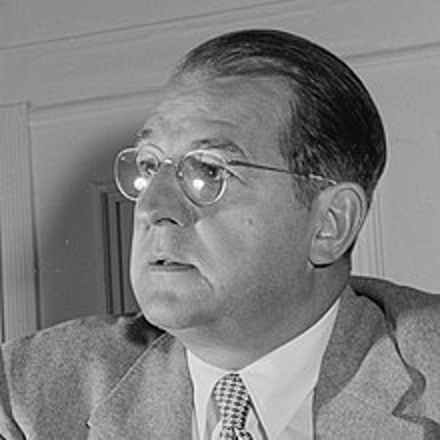
Nathan Homer Knorr |
|
Knorr in September 1955 |
|
Born | April 23, 1905 Bethlehem, Pennsylvania, U.S. |
Died | June 8, 1977 (aged 72) Wallkill, New York, U.S. |
1975 guy
The doctrine of not accepting blood transfusions was also introduced during Knorr's leadership.
From October 1, 1972, adjustments began in the oversight of the congregations of Jehovah's Witnesses. The writing of Aid to Bible Understanding led to a new understanding of the Bible's mention of elders and "older men" and seems to have been the catalyst for the denomination to adjust its organizational structure.[10]) A revision to the Watchtower Society's organizational manual in 1972 explained, "it is noteworthy that the Bible does not say that there was only one 'older man', one overseer, in each congregation. Rather, it indicates that there were a number of such."[11]
There would no longer be one congregation servant, or overseer, but a body of elders and ministerial servants. One elder would be designated chairman, but all the elders would have equal authority and share the responsibility for making decisions.[12]
Later, the chairmanship of the Governing Body was affected, rotating in alphabetical order. In December 1975, leadership of the Jehovah's Witnesses passed from the president of the Watch Tower Society to the Governing Body of Jehovah's Witnesses. Beginning January 1, 1976, the Governing Body formed several committees to oversee publishing, writing, teaching, service and personnel.[13] Knorr worked with the new arrangement, until illness shortly before his death forced his move from the world headquarters in Brooklyn, New York. Following Knorr's death in June 1977, Frederick William Franz succeeded him as corporation president.[14]
Publications used by Jehovah's Witnesses that were released during Knorr's tenure include:
"All Scripture Is Inspired Of God And Beneficial"
Awake! magazine, which replaced Consolation
"Equipped For Every Good Work"
From Paradise Lost to Paradise Regained
"Let God Be True"
"Make Sure Of All Things"

Frederick William Franz |
|
|
|
Born | September 12, 1893 Covington, Kentucky, U.S. |
Died | December 22, 1992 (aged 99) Brooklyn, New York, U.S. |
Known for | President of the Watch Tower Bible and Tract Society of Pennsylvania |
Relatives | Raymond Franz (nephew) |
Signature |
|
in 1911 and attended the University of Cincinnati, where he studied liberal arts and biblical Greek,[1][5] with the intention of becoming a Presbyterian preacher.[4] He knew German and could read Latin, Greek and in later years self-taught Spanish, Portuguese, French and Hebrew.[5][6
He had previously served as vice president of the same corporation from 1945 until 1977 when he replaced Nathan H. Knorr as president. He was also a member of the Governing Body of Jehovah's Witnesses, which assumed over-all control of all Jehovah's Witness corporations in 1976.[1]
Upon the death of Watch Tower president Joseph Rutherford, Franz became head of the editorial department, and in 1945 he replaced Hayden C. Covington as vice-president of the Watch Tower Society.[9] Franz was the society's leading theologian[10] and has been named as a leading figure in the preparation of the Witnesses' New World Translation of the Bible.[11][12] His nephew and fellow Governing Body member Raymond Franz resigned from the Governing Body and was subsequently disfellowshipped in 1982 during F. W. Franz's presidency.[13]
Franz was the translator, with only 2 years of experience in Hebrew and Greek apparently
Ray Franz wrote Crises of Consciousness
In 2015, Franz was cited as an example of one of the last members of the "anointed" alive in 1914, suggesting that the "generation" would include any individuals "anointed" up until his death in 1992 at the earliest.[17]
So that’s the cut off aye?

Milton George Henschel |
|
Milton George Henschel |
|
Born | 9 August 1920 Pomona, New Jersey, U.S. |
Died | 22 March 2003 (aged 82) Brooklyn, New York, U.S. |
Spouse | Lucille Henschel |
was a member of the Governing Body of Jehovah's Witnesses and succeeded Frederick W. Franz as president of the Watch Tower Society in 1992.
In 1939, Henschel was appointed secretary to Nathan H. Knorr, who was overseeing work at the Watch Tower printery. After Knorr became president of the Watch Tower Society in 1942, Henschel continued as his assistant. Henschel was often with Knorr in his travels, visiting at least 150 countries during this time. By 1945, Henschel was a featured speaker at international events though only 25 years old.[9]
Starting to sound like the good ole' boys club.
By 1947, Henschel had claimed to be "anointed"[10]—not unusual among Jehovah's Witnesses at the time—which was a criterion at the time for appointment as a director of the Watch Tower Society. Henschel was elected to the board of directors in 1947,[11]
Self-claim. Because that’s how that works…
In March 1963, Henschel was among a large group of Jehovah's Witnesses who were detained and assaulted during a religious conference in Liberia.[15] He returned a few months later to meet with Liberia's president to discuss freedom of worship for Jehovah's Witnesses. In June, 1963, Henschel was a guest on a talk show hosted by Larry King.[16]
In a July 1968 interview with the Detroit Free Press, Henschel was asked about the Watch Tower Society's recently stated opposition to organ transplants,[17] to which he responded that "transplanting organs is really cannibalism",[18] a position that was abandoned in 1980.[19] In the same interview, Henschel described the Watch Tower view of the immediate future, making reference to the impending battle of Armageddon. He conceded that there was no specific date for the outbreak of Armageddon, but stated, "1975 is a year to watch," alluding to Jehovah's Witnesses' belief that 6000 years of mankind's existence would be reached that year, an apparent precursor to Christ's millennial reign.[20]
How can they change your mind? How can God change his mind on this when those that believed they shouldn't went ahead and died. That’s blood guilt.
Pushing on the world this 1975…ONF OF THE HEAD DUDEs HIMSELF.
They obviously didn't look at the Hebrew calendar 1975=5735-5736.
By 1973, Henschel was "branch overseer for the United States".[21] Henschel contributed to the book Religions of America (1975), edited by Leo Rosten, with the chapter "Who are Jehovah's Witnesses?". In 1984, Henschel was the chairman for the centennial commemoration of the incorporation of the Watch Tower Society.
In February 1990, Henschel met with the chairman of the Committee of Religious Affairs in Moscow, along with eleven Russian elders representing local Jehovah's Witnesses, which led to the official recognition of Jehovah's Witnesses in Russia by March 1991.[22]
Henschel became president of the Watch Tower Society December 30, 1992, and remained in that position until 2000. Major organizational changes took place in 2000, as the Governing Body of Jehovah's Witnesses was separated from the Society's board of directors. As a result, members of the Governing Body stepped aside from their capacities in the Watch Tower Society, and Don A. Adams was appointed president. Henschel remained a member of the Governing Body until his death in 2003.

Don A. Adams |
|
|
|
Born | Oak Park, Illinois, U.S. |
Died | December 30, 2019 (aged 94) |
Occupation | President of the Watch Tower Bible and Tract Society of Pennsylvania (2000–2014)[3] |
was president of the Watch Tower Bible and Tract Society of Pennsylvania (2000–2014),[4][5][3] the principal corporation of Jehovah's Witnesses.
After serving as a full-time preacher, Adams was invited in late 1944 to serve at the world headquarters of Jehovah's Witnesses in Brooklyn, New York,[9][10][11][12] where he was secretary to Society president, Nathan H. Knorr. By the 1960s, Adams served directly under the Governing Body as a zone overseer, visiting various countries to audit branch offices and meet with Witness missionaries.[13][14] Later, Adams directed world missionary activities,[15] and served on the "Bethel Home Committee".[16]
In 2000, the New York Daily News described Adams as "a longtime insider ... at the world headquarters in Brooklyn Heights."[6] The Washington Post described Adams as "a 50-year veteran of the organization,"[17] which has been restated in subsequent publications.[18][19] Adams also served on the Publishing Committee.[20]
Adams, a Governing Body "helper",[21] became president of the Watch Tower Society after Governing Body member Milton G. Henschel stepped down from the position in 2000.[22][23] In that year, members of the Governing Body resigned from their executive positions of the corporations of Jehovah's Witnesses, although the periodical Christianity Today reported that the Governing Body of Jehovah's Witnesses would continue its "oversight" role.[24][25]
Adams' presidency was administrative, and he is not considered to have impacted the organization's ministry as have past Watch Tower Society presidents.[26]
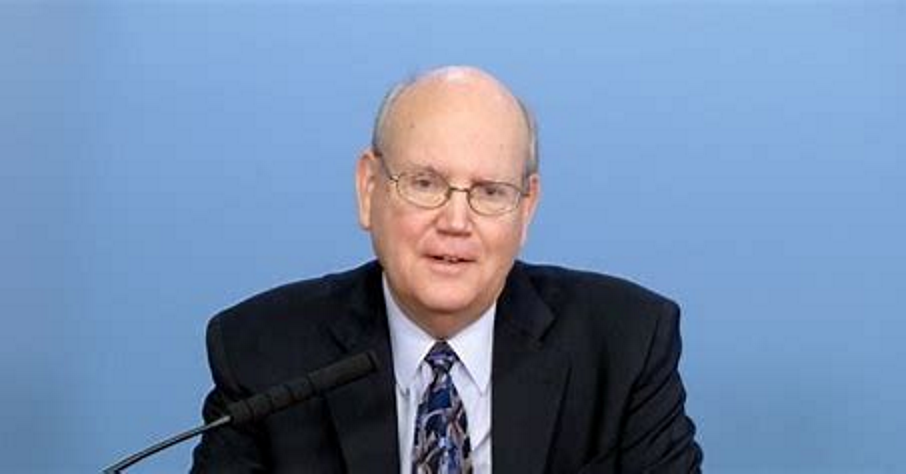
Robert Louis Ciranko
(born March 9, 1947) is the current president of the Watch Tower Bible and Tract Society of Pennsylvania (2014–), the principal corporation of Jehovah's Witnesses.[1][2][3]
Structure
The Personnel Committee arranges for volunteers to serve in the organization's headquarters and worldwide branch offices, which are each referred to as Bethel (from a Hebrew term meaning house of God). It oversees arrangements for the personal and spiritual assistance of Bethel staff, as well as the selection and invitation of new Bethel members.
The Publishing Committee supervises the printing, publishing and shipping of literature, as well as legal matters involved in printing, such as obtaining property for printing facilities. It is responsible for overseeing factories, properties, and financial operations of corporations used by Jehovah's Witnesses.
The Service Committee supervises the evangelical activity of Jehovah's Witnesses, which includes traveling overseers, pioneers, and the activities of congregation publishers. It oversees communication between the international headquarters, branch offices, and the congregations. It examines annual reports of preaching activity from the branches. It is responsible for inviting members to attend the Gilead school, the Bible School for Single Brothers,[52] and the Traveling Overseers' School, and for assigning graduates of these schools to their places of service.[53][54]
The Teaching Committee arranges congregation meetings, circuit assemblies, and regional and international conventions as well as various schools for elders, ministerial servants, pioneers and missionaries, such as Gilead school. It supervises preparation of material to be used in teaching, and oversees the development of new audio and video programs.
The Writing Committee supervises the writing and translation of all material published by the Watch Tower Bible and Tract Society, including scripts for dramas and talk outlines. It responds to questions about scriptural, doctrinal, and moral issues, specific problems in the congregations, and the standing of members in congregations.
The Coordinator's Committee deals with emergencies, disaster relief and other matters, such as investigations. It comprises the coordinators, or a representative, from each of the other Governing Body committees and a secretary who is also a member of the Governing Body. It is responsible for the efficient operation of the other committees.
The Governing Body
A governing body is a group of people that has the authority to exercise governance over an organization or political entity. The most formal is a government, a body whose sole responsibility and authority is to make binding decisions in a taken geopolitical system (such as a state) by establishing laws.
Guess we forgot Jesus said we don’t rule as gentiles.
The Governing Body does not consult with the other anointed Witnesses whom it was said to represent when formulating policy and doctrines or approving material for publications and conventions; the authority of the Governing Body was presumed to be analogous to that of the older men of Jerusalem in cases such as the first-century circumcision issue.[69]
The majority of Witnesses who profess to be anointed have no authority to contribute to the development or change of doctrines.[70][71][72] Anointed Witnesses are instructed to remain modest and avoid "wildly speculating about things that are still unclear", instead waiting for God to reveal his purposes[72] in The Watchtower.[73]
Their king didn't agree with this.
Members

Jehovah’s Witnesses Governing Body Member:
Kenneth E. Cook, Jr. was born and raised in south-central Pennsylvania, USA. He learned about the teachings of Jehovah’s Witnesses from a classmate just before graduating from high school and was baptized on June 7, 1980. He began full-time service as a regular pioneer on September 1, 1982.
After pioneering for two years, he was invited to serve at Bethel, the headquarters of Jehovah’s Witnesses, beginning his Bethel service at Wallkill, New York, on October 12, 1984.
Over the next 25 years, Brother Cook held various assignments in both the Printery and the Bethel Office. In December 2009, he and his wife, Jamie, were transferred to the Watchtower Educational Center at Patterson, New York, where Brother Cook worked with the Writing Correspondence Department.
In January 2017, Brother Cook was appointed to serve as a helper to the Writing Committee of the Governing Body. The Governing Body now consists of eight anointed brothers, including Kenneth E. Cook, Jr1.
U.S. Army Veteran:
Corporal (CPL) Kenneth E. Cook Jr. joined the U.S. Army on February 15, 1951. He was sent to Korea as a member of the 38th Infantry Regiment, 2nd Infantry Division.
He was discharged from the Army at Fort Benjamin Harrison in Indianapolis, Indiana, on February 7, 1953 23.
Kenneth Cook, Jr.'s contributions to both religious leadership and military service have left a lasting impact. If you’d like more information about either context, feel free to explore the provided sources!

Gage Fleegle was announced as a member of the Governing Body of Jehovah’s Witnesses on January 18, 2023. His appointment reflects his long history of faithful service to Jehovah. Let me share some details about Brother Fleegle:
Background: Brother Gage Fleegle was raised in western Pennsylvania, U.S.A., by God-fearing parents. When he was a teenager, his family moved to a small rural town where the need for spiritual support was greater. He got baptized on November 20, 1988.
Bethel Service: Brother Fleegle fulfilled a goal he had set at the age of 12 by serving at Bethel. He began his service at Brooklyn Bethel in October 1991. Initially, he worked in the Bindery for eight years before being assigned to the Service Department. During his time at Bethel, he also served in a Russian-language congregation.
Marriage and Field Service: In 2006, Brother Fleegle married his wife, Nadia, who joined him in Bethel service. Together, they have served in the Portuguese and Spanish fields for over ten years.
Governing Body Helper: In March 2022, he was appointed as a helper to the Service Committee of the Governing Body12.

Samuel Frederick Herd has an interesting life story. He was born in a one-room log cabin in a small town called Liberty, Indiana, USA. His parents already had three children when he came along. Later, he had two younger brothers and a younger sister. During his school years, not much changed in the town of Liberty. The people he was with in first grade were the same ones he finished school with. Samuel grew up on a farm, surrounded by cornfields. His father, despite being older, was a hardworking man who taught Samuel and his siblings the value of hard work. Neither of his parents served Jehovah, but one of his brothers has faithfully served as an elder since the early 1970s1.
Samuel Herd’s journey took some interesting turns. He tried boxing during high school but eventually gave it up. Later, he was drafted into the U.S. Army and sent to Germany. His superiors recognized his natural leadership abilities and wanted him to make the military his career, but Samuel had other plans. After finishing his service time, he was honorably discharged in 1956. However, his life took a different direction when he enrolled in a very different “army” – the spiritual one. Samuel Herd became one of Jehovah’s Witnesses and has been part of the United States Bethel family, serving in various capacities. He is currently a member of the Governing Body, overseeing committees related to publishing, service, and writing2.
It’s fascinating to see how Samuel’s life transformed from humble beginnings to spiritual richness. His dedication to serving Jehovah has been a central theme in his life, and he continues to contribute to the spiritual well-being of Jehovah’s Witnesses worldwide1.
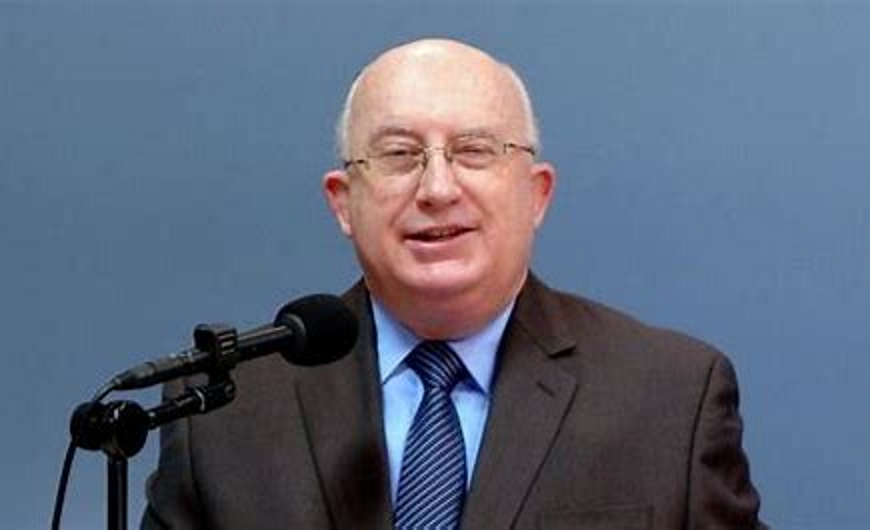
Geoffrey William Jackson is a member of the Governing Body of Jehovah’s Witnesses. He was born in Queensland, Australia, in 1955. Here are some key points about his life and role:
Early Life:
Jackson was baptized as a Jehovah’s Witness in 1968.
At the age of 15, he left school to work as a full-time preacher in Tasmania.
In June 1974, he married Jeanette (Jenny) Alcock.
Missionary Work:
Together with Jeanette, he served as a missionary in Tuvalu, Samoa, and Fiji from 1979 to 2003.
During this time, Jackson also worked on translating religious literature into languages such as Tuvaluan, Samoan, Tongan, Fijian, and others.
Their work in the Tuvaluan language led to the creation of a Tuvaluan dictionary and a grammar book.
Branch Office and Governing Body:
In April 2003, Jackson moved to the United States to work in the Translation Services Department at the Jehovah’s Witnesses headquarters.
He became a helper to the Teaching Committee of the Governing Body.
On August 24, 2005, he was officially added as a member of the Governing Body, where he has served ever since.
Jackson’s first wife, Jeanette, passed away from cancer in 2009. He later remarried Loraini Sikivou, who is also a translator1.
Australian Royal Commission Hearing:
In 2015, during an investigation into child sexual abuse allegations among Jehovah’s Witnesses in Australia, Jackson appeared before the Australian Royal Commission into Institutional Responses to Child Sexual Abuse.
There was debate about whether he would testify, but he eventually did participate in the hearing2.

Mark Stephen Lett, a member of the Governing Body of Jehovah’s Witnesses, has a significant history within the organization. Before joining the Governing Body, he served as a circuit overseer from 1979 to 1998. Circuit overseers play a crucial role in supervising congregations, providing spiritual guidance, and ensuring organizational unity.
As a member of the Governing Body since October 2, 1999, Lett has been involved in shaping doctrines, overseeing publications, and making decisions that impact the global community of Jehovah’s Witnesses. His contributions extend beyond administrative duties; he is known for his distinctive expressions and statements during conventions and broadcasts.
Mark Stephen Lett, a member of the Governing Body of Jehovah’s Witnesses, has been associated with some interesting property investments. While he encourages others to live simply and avoid materialism, there have been reports that he himself invested in real estate.
According to sources, Lett invested $250,000 in a property along with his brother. This investment was made eight years ago purely as an investment property, not for personal residence. It’s worth noting that as a Governing Body member, he has accumulated enough funds to make such an investment. This situation raises questions about the consistency of his teachings regarding materialism and simple living1.

Gerrit Lösch is a member of the Governing Body of Jehovah’s Witnesses. The Governing Body serves as the ruling council of Jehovah’s Witnesses and is based at the denomination’s headquarters in Warwick, New York. Here are some key details about Gerrit Lösch:
Background and Service:
Nationality: Austrian
Birthplace: Austria (born in 1941)
Baptism: January 1959
Gilead Graduate: 41st Class
Branch Committee Membership: Austria (1976–1989)
Governing Body Helper Membership: 1992
Governing Body Helper for the Service Committee
Long Service:
Gerrit Lösch has been an incumbent member of the Governing Body for 29 years and 332 days as of now2.
Additional Information:
He has also been involved in producing content related to Jehovah’s Witnesses, including the 2014 Annual Meeting Program and JW Broadcasting4.

Douglas Mark Sanderson is a member of the Governing Body of Jehovah’s Witnesses. He began serving in this capacity on September 1, 20121. Here are some details about him:
Background: Brother Sanderson was raised in San Diego, California, U.S.A., by his Christian parents and was baptized on February 9, 1975.
Pioneering Service: He began serving as a pioneer in Saskatchewan, Canada, on September 1, 1983.
Special Pioneer: Brother Sanderson was appointed to serve as a special pioneer on the island of Newfoundland, Canada, in April 1991.
Bethel Service: After serving as a substitute circuit overseer, he became a member of the Canada Bethel family in February 1997.
Branch Committee Member: In September 2008, Brother Sanderson attended the School for Branch Committee Members and was then appointed as a member of the Philippines Branch Committee.
Service to Governing Body: In September 2010, he was invited to return to the United States, where he served as a helper to the Service Committee of the Governing Body. Starting September 1, 2012, he officially became a new member of the Governing Body1.

David Howard Splane is a member of the Governing Body of Jehovah’s Witnesses. He has been serving in this capacity for 24 years and 239 days1. Let me provide you with some additional information about him:
David Splane became a full-time minister in September 1963.
He graduated from the 42nd class of Gilead, which is the Jehovah’s Witness missionary school.
After completing his training, he served as a missionary in Senegal, Africa.
For 19 years, he worked as a traveling overseer in Canada23.
Since 1990, David Splane and his wife, Linda, have been at Bethel in the United States, where he has been involved in the Service and Writing departments4.
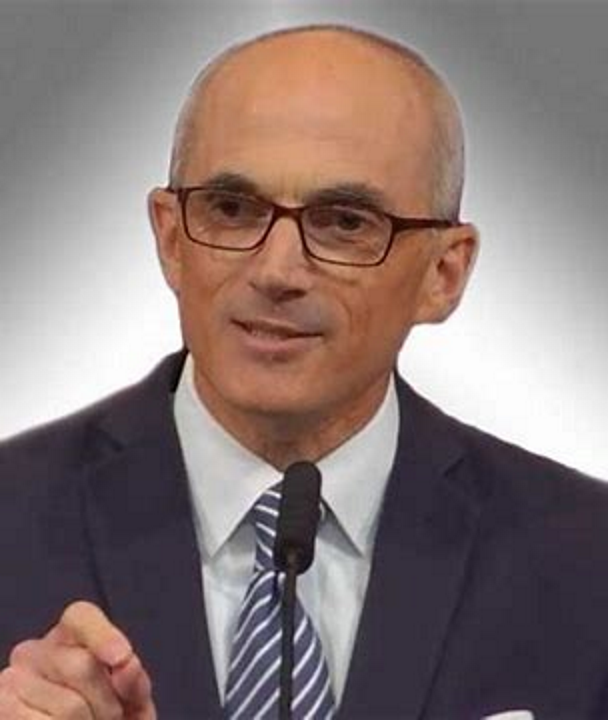
Jeffrey Winder was announced as a member of the Governing Body of Jehovah’s Witnesses on January 18, 2023. Prior to this appointment, he served as a Helper to the Personnel Committee and had been working under the oversight of Ralph Walls in the Bethel Office12. Brother Winder has a long history of faithful service to Jehovah, and his dedication to the organization is evident through his various roles and responsibilities.
Brother Winder was raised in Murrieta, California, U.S.A., and he was brought up in the truth by his parents. He got baptized on March 29, 1986, and the very next month, he decided to auxiliary pioneer. His positive experience led him to continue pioneering, and he began regular pioneering on October 1, 1986. As a teenager, Brother Winder visited his two older brothers who were serving at Bethel at the time. This visit ignited his desire to apply for Bethel service when he was older, and in May 1990, he was invited to serve at the Bethel facility in Wallkill.
During his time at Bethel, Brother Winder worked in various departments, including the Cleaning Department, the Farm Department, and the Bethel Office. In 1997, he married his wife, Angela, and they have been serving together at Bethel ever since. In 2014, they transferred to Warwick, where Brother Winder assisted with the construction of the world headquarters facility. Later, in 2016, they moved to the Watchtower Educational Center at Patterson, where Brother Winder worked in Audio/Video Services. Four years later, they returned to Warwick, and Brother Winder was assigned to work in the Personnel Committee Office. His appointment as a member of the Governing Body reflects his dedication and contributions to the spiritual well-being of Jehovah’s Witnesses worldwide1.
New GB Oct 5th 2024

Jody Jedele
Joined bethel in the 90s, moved around to different areas ever since, now in NC. Also, the treasurer of a Florida KH. Owns 2 different real-estate companies, Touchstone being one of them. People that work at Bethel, however, are supposed to take a poverty vow. So, this is interesting. His video literally sounds like a JW sermon.
Video while he should be taking the vow.

Jacob Rumph
Joined bethel in 2020, no other information. Just young, 47.

Who's never growing old?





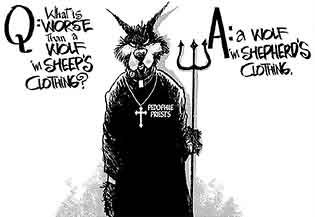

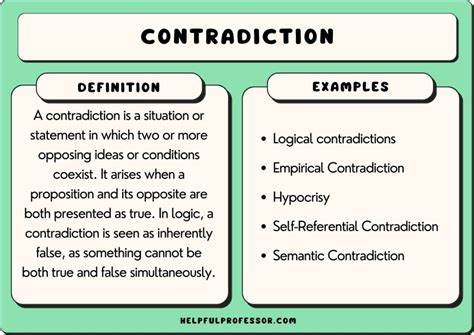
Comments